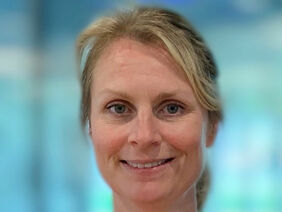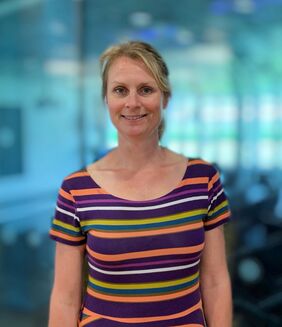Important notice: Unfortunately, the colloquium cannot take place. The date will probably be made up for next year and will be announced in good time beforehand. |
Clonal hematopoiesis of indeterminate potential (CHIP) refers to blood formation from bone marrow stem cells with mutations in leukemia-associated driver genes in healthy individuals. It increases rapidly in people aged 60 and above. Detecting CHIP correlates with an elevated risk for affected individuals to develop leukemia and age-associated conditions like heart diseases and ischemic stroke.
The research group led by Kristina Kirschner investigates the factors promoting CHIP and aims to quantify their effects. They particularly examine their impact on health in older age using longitudinal studies of sequencing data. Kristina Kirschner and her colleagues introduce a novel method for improved analysis of this sequencing data. Furthermore, they identified gene-specific fitness differences, laying the groundwork for future personalized therapeutic approaches.
Prof. Kristina Kirschner is Senior lecturer and Associate Professor in the School of Cancer and the at the leading the Single Cell Advanced Technologies facility. She is interested in the interplay between stem cell ageing and cancer, and employs a variety of model systems for her research.
| Title of Talk: | Clonality in the ageing hematopoietic stem cell compartment – insights from longitudinal cohorts of ageing |
| When: | Thursday, September 7, 2023, 3:00 pm |
| Where: | Seminar room “Nucleus”, main building (FLI 1), Beutenbergstraße 11, Jena |
| Host: | Claudia Waskow (Group leader: Immunology of aging) |
The colloquium will be a hybrid event. Details for accessing the session will be provided before the colloquium takes place. For external guests: Please contact Ivonne.Roeppnack-Jahnke@leibniz-fli.de for details.












